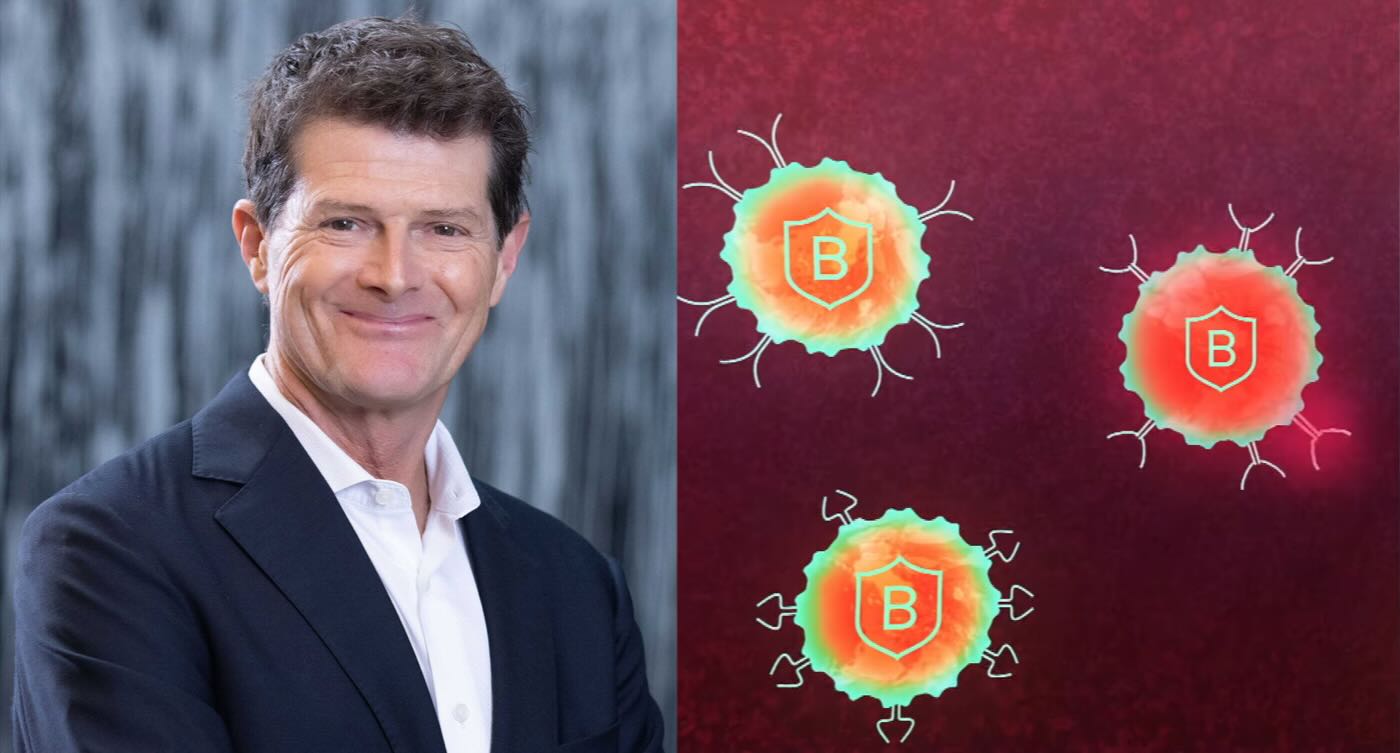Landmark Autoimmune discoveries Net Prestigious Crafoord Prize for US and Australian researchers
Table of Contents
- 1. Landmark Autoimmune discoveries Net Prestigious Crafoord Prize for US and Australian researchers
- 2. The Promise of B Cell Therapies: A New Era for Autoimmune Treatment
- 3. The Impact on Future Therapies and Prevention
- 4. The Economic Burden of Autoimmune Diseases in the US
- 5. Exploring the Science: Watch the Crafoord Prize Video
- 6. What lifestyle or environmental factors, besides diet, exercise, sleep, stress management, and weight, might contribute to improving immune health and reducing teh risk of autoimmune diseases?
- 7. Interview: Dr. evelyn Reed on Autoimmune Disease Breakthroughs and the Crafoord Prize
April 6, 2025
In a breakthrough that could revolutionize the treatment of autoimmune diseases, Christopher Goodnow and David Nemazee have been awarded the 2025 Crafoord prize in Polyarthritis for their parallel discoveries on how the body prevents B cells from attacking its own tissues.this proclamation, made in early 2025, marks a pivotal moment in understanding and perhaps curing diseases like lupus, rheumatoid arthritis, and multiple sclerosis that affect millions of Americans.
Autoimmune diseases occur when the body’s immune system, normally a vigilant protector against foreign invaders, mistakenly targets healthy cells and tissues. This misdirected attack can lead to chronic inflammation, tissue damage, and a wide range of debilitating symptoms. For years, scientists have been working tirelessly to unravel the complexities of these conditions. Lupus alone affects an estimated 1.5 million Americans, according to the Lupus Foundation of America, with a disproportionate impact on women and minority groups.
Goodnow and Nemazee, working independently on opposite sides of the globe, pursued a crucial question: why doesn’t everyone develop autoimmune diseases? Their research focused on B cells, key components of the immune system responsible for producing antibodies. These antibodies, when functioning correctly, target and neutralize threats like viruses and bacteria. But when B cells malfunction, they can produce autoantibodies that attack the body’s own tissues.
The researchers’ work revealed the intricate mechanisms that normally prevent these rogue B cells from wreaking havoc. These mechanisms,collectively known as B cell tolerance,involve processes that eliminate,inactivate,or suppress self-reactive B cells before they can cause harm. By understanding these mechanisms, Goodnow and Nemazee have provided a critical foundation for developing new therapies that can restore immune balance in individuals with autoimmune diseases. The Royal Swedish Academy of Sciences recognized the significance of their findings, stating, They have given us a new and detailed understanding of the mechanisms that normally prevent faulty B cells from attacking tissues in the body, explaining why most of us are not affected by autoimmune diseases.
Olle Kämpe, a member of the Academy and chair of the Crafoord Prize committee, underscored the importance of their work.
The Promise of B Cell Therapies: A New Era for Autoimmune Treatment
The insights gained from Goodnow and Nemazee’s research are already influencing clinical practice. Doctors have begun exploring the use of existing drugs to selectively deplete or neutralize B cells in patients with severe autoimmune diseases.these therapies,frequently enough referred to as B cell depletion therapies,have shown promising results in improving the quality of life for individuals with lupus,rheumatoid arthritis,and multiple sclerosis. Such as, Rituximab, a monoclonal antibody that targets B cells, has been used off-label to treat certain autoimmune conditions when other treatments have failed.
One area of particular interest is the use of CAR-T cell therapy for lupus. While still in its early stages, this approach involves genetically engineering a patient’s own T cells to target and destroy B cells. Early clinical trials have shown remarkable success in some patients, leading to long-term remission without the need for ongoing medication. this potentially transformative approach offers hope for a future where autoimmune diseases can be effectively cured, not just managed. However, it’s vital to note that CAR-T cell therapy is not without risks, including cytokine release syndrome and neurotoxicity, and its long-term effects are still being studied. the FDA approved CAR-T cell therapies for certain cancers have been approved, paving the way for its inquiry in autoimmune diseases.
However, some researchers caution against a purely B cell-centric approach. They argue that other immune cells, such as T cells and inflammatory cytokines, also play critical roles in the pathogenesis of autoimmune diseases. Therefore, a more holistic approach that targets multiple components of the immune system may be necessary to achieve optimal therapeutic outcomes.
The Impact on Future Therapies and Prevention
The crafoord Prize not only recognizes past achievements but also serves as a catalyst for future research. The fundamental knowledge gained from Goodnow and Nemazee’s work is paving the way for the advancement of novel therapies that can more precisely target the underlying causes of autoimmune diseases. This includes strategies to re-educate the immune system, restore B cell tolerance, and prevent the development of autoantibodies.
The potential impact extends beyond treatment to prevention. By understanding the genetic and environmental factors that contribute to the breakdown of B cell tolerance, researchers might potentially be able to identify individuals at risk of developing autoimmune diseases and implement preventive measures. This could involve lifestyle modifications, dietary interventions, or even targeted therapies to bolster immune function and prevent the onset of disease.
A professor of clinical immunology at the Royal Swedish Academy of Sciences emphasized this hope, stating, This also paves the way for development of new forms of therapies that eventually can cure these diseases—or might prevent them in the future.
For Christopher Goodnow, the Crafoord Prize was a moment of profound personal and professional significance. It’s the most amazing phone call of my life!
he exclaimed. I’m honored… and it’s also fantastic to share the prize with David Nemazee. We were friendly competitors working at different places in the world, and the two of us arrived at complementary answers at a time when most working in the field didn’t believe B cell tolerance was a thing.
Goodnow’s sentiment highlights the collaborative spirit of scientific discovery and the importance of pursuing unconventional ideas.
The Economic Burden of Autoimmune Diseases in the US
Autoimmune diseases pose a significant economic burden on the US healthcare system.Direct medical costs, including doctor visits, hospitalizations, and prescription drugs, are substantial.Indirect costs, such as lost productivity and disability payments, further exacerbate the financial strain on individuals and the economy as a whole. The National Institutes of Health (NIH) estimates that autoimmune diseases cost the US billions of dollars annually.
The development of more effective therapies and preventive strategies could substantially reduce this economic burden, freeing up resources for other healthcare priorities.
| Autoimmune Disease | Estimated Prevalence in the US | Economic Impact |
|---|---|---|
| Rheumatoid Arthritis | 1.3 million adults | Billions in direct and indirect costs annually |
| Lupus | 1.5 million people | Significant healthcare expenditures and lost productivity |
| Multiple Sclerosis | Nearly 1 million adults | High costs associated with disease-modifying therapies and disability |
Exploring the Science: Watch the Crafoord Prize Video
Delve deeper into the groundbreaking research of Christopher Goodnow and David Nemazee. This video offers valuable insights into their methodology, findings, and the implications for future autoimmune disease treatments.
What lifestyle or environmental factors, besides diet, exercise, sleep, stress management, and weight, might contribute to improving immune health and reducing teh risk of autoimmune diseases?
Interview: Dr. evelyn Reed on Autoimmune Disease Breakthroughs and the Crafoord Prize
April 6, 2025
Archyde News: Welcome, Dr. Reed. It’s a pleasure to have you. For our audience, Dr. Evelyn Reed is a leading immunologist specializing in autoimmune diseases. Dr. Reed, the recent Crafoord Prize awarded to Goodnow and Nemazee has generated notable excitement.can you shed some light on the importance of their work?
Dr. Reed: Absolutely. Their research has provided invaluable insight into the mechanisms preventing autoimmune diseases—specifically, how our bodies normally *avoid* attacking themselves. This understanding is foundational to developing more targeted treatments. It focuses on B cell tolerance and the crucial role these cells play in the progress of autoimmune diseases like lupus and rheumatoid arthritis. Essentially, they’ve helped us understand why most of us *don’t* have these debilitating conditions.
Archyde News: The article mentions B cell depletion therapies. Could you explain how that works, and what kind of impact it’s having in clinics right now?
Dr. Reed: Certainly. B cell depletion therapies, like Rituximab, work by targeting and removing B cells. They’ve shown promise in managing the symptoms of some autoimmune conditions, by reducing the production of autoantibodies that attack the body. We’re seeing improvements in the quality of life for patients with conditions like lupus, rheumatoid arthritis, and multiple sclerosis.The clinical request is already underway, wich is a testament to their impact.
Archyde News: CAR-T cell therapy looks notably promising, especially for lupus, from what we’ve read, but it seems to be quite new. What are the challenges and the potential rewards of this approach?
Dr.Reed: It’s a engaging and potentially transformative area. CAR-T cell therapy harnesses the power of a patient’s own immune cells, genetically engineered to target and destroy specific cells. The initial results in lupus trials have been very encouraging, with some patients experiencing long-term remission. However, CAR-T cell therapy can have serious side effects, so it’s crucial to balance the potential benefits with these risks. And of course, the long-term effects of this type of treatment will take time to fully understand. The FDA’s approval for certain cancers is opening doors for similar research in autoimmune diseases.
Archyde News: Beyond treatment, the article discussed potential for prevention. What kind of strides are being made in this area?
Dr. Reed: The focus is on identifying risk factors and early warning signs. Factors like genetics and surroundings play a role. If we can identify individuals at higher risk, we may one day develop preventative strategies to reduce susceptibility, perhaps through lifestyle changes, dietary interventions, or even targeted therapies designed to boost the immune system. This research isn’t just about treating disease; it’s about stopping it before it starts.
Archyde News: Goodnow’s and Nemazee’s research is paving the way for future therapies. what kind of impact can we expect to see in the coming years?
Dr. Reed: We’re likely to see a shift toward more personalized treatments, which precisely target the autoimmune response. This means fewer “one-size-fits-all” approaches and more therapies that are tailored to an individual’s specific disease and genetic profile. This could lead to substantially improved outcomes compared to the current standard of care. There’s hope we’ll get closer toward the development of new forms of therapies that can eventually cure these diseases,or at least prevent them in the future.
Archyde News: The economic burden of autoimmune diseases is significant, as the article pointed out. How do you think reducing that burden could impact healthcare and our economy overall?
Dr. Reed: autoimmune diseases put a massive strain on healthcare resources considering direct medical costs and resulting loss of productivity. More effective treatments and preventative measures could free up substantial resources in the healthcare system, ultimately helping fund othre critical health initiatives, which would also have a positive impact on productivity and our overall economy.
Archyde News: A final question to open up discussion: Considering that genetic and environmental factors seem to be intertwined in the development of autoimmune diseases, what do you think are the most significant lifestyle or environmental steps we, as a population, can take to improve our overall immune health and potentially reduce our risk?
Dr. Reed: That’s an important question to consider. Engaging in a balanced diet that includes whole foods, staying physically active, maintaining ideal weight, managing stress levels, and getting adequate sleep are all very crucial, but there might be other ways to help that we don’t even realize yet. Understanding and exploring all the different dimensions of our health is our best approach. It can be beneficial, but what do you think our readers would find to be a great approach? Please share your thoughts in the comments.
Archyde News: Dr. Reed, thank you so much for sharing your insights with us today. This has been incredibly informative.
Dr.Reed: My pleasure.







